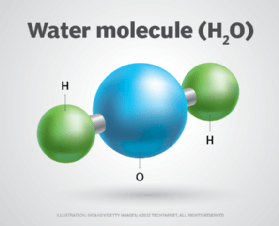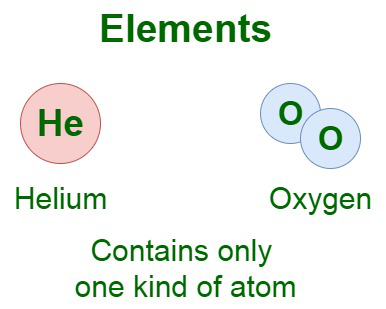chemistry vocab midterm
0.0(0)
0.0(0)
Card Sorting
1/106
Earn XP
Description and Tags
Study Analytics
Name | Mastery | Learn | Test | Matching | Spaced |
|---|
No study sessions yet.
107 Terms
1
New cards
analytical chemistry
the study of the composition of substances
2
New cards
biochemistry
the study of the composition and behavior of substances in living organisms
3
New cards
chemistry
the study of the structure, properties, and composition of substances and the changes that substances undergo
4
New cards
experiment
a carefully controlled, repeatable procedure for gathering data to test a hypothesis
5
New cards
hypothesis
a proposed explanation for observation
6
New cards
inorganic chemistry
primarily the study of substances that do not contain carbon
7
New cards
organic chemistry
the study of compounds that contain the element carbon
8
New cards
observation
information obtained through the sense which often involves measurements
9
New cards
physical chemistry
the study of theoretical basis of chemical behavior, relying on mathematics and physics
10
New cards
scientific law
a concise statement that summarizes the results of many observations and experiements
11
New cards
scientific method
a method of inquiry involving observation, experiments, hypothesis, and broad explanations called theories
12
New cards
theory
a thoroughly tested model that explains why experiments give certain results
13
New cards
chemical property
the ability of a substance to undergo chemical reactions and to form new substances
14
New cards
chemical reaction
the changing of substances to other substances by the breaking of bonds in reactants and the formation of bonds in products
15
New cards
chemical symbol
a one or two letter representation of an element
16
New cards
compound
a substance that can be separated into simpler substances only by chemical reactions

17
New cards
distillation
a purification in which a liquid is evaporated and then condensed again to a liquid; used to separate dissolved solids from liquids or liquids from liquids according to boiling points
18
New cards
element
a substance that cannot be changed into simpler substance under normal laboratory conditions

19
New cards
gas
matter that has no definite shape or volume; it adopts the shape and volume of its container
20
New cards
heterogeneous mixture
a mixture that in not uniform in composition
21
New cards
homogeneous mixture
a mixture that is completely uniform in composition
22
New cards
law of conservation of mass
mass can neither be created nor destroyed in an ordinary chemical or physical process
23
New cards
liquid
a form of matter that flows, has a fixed volume and takes the shape of its container
24
New cards
mass
the amount of matter that an object contains which is measured in kilograms
25
New cards
matter
anything that has mass and takes up space
26
New cards
mixture
a physical blend
27
New cards
phase
any part of a system with uniform composition and position
28
New cards
physical change
an alternation of a substance that does not affect its chemical composition
29
New cards
physical property
a quality of substance that can be observed or measured without changing the substance’s chemical composition
30
New cards
product
a substance formed in a chemical reaction
31
New cards
reacant
that starting substance in a chemical reaction
32
New cards
solid
matter that has definite shape and volume
33
New cards
solution
another name for a homogeneous solution
34
New cards
substance
a sample of matter having a uniform and definite composition; it can be either an element or a compoun
35
New cards
vapor
a substance in the gaseous state that is ordinarily a liquid or solid at room temperature
36
New cards
absolute zero
the zero point on the Kelvin temperature scale; equivalent to -273.15 C; all molecular motion theoretically stops at this temperature
37
New cards
accepted value
a quantity used by general agreement of the scientific community
38
New cards
accuracy
the closeness of a measurement to the true value of what is being measured
39
New cards
celcius scale
the temperature scale on which the freezing point of water is 0 C and the boiling point is 100 C
40
New cards
density
the ratio of the mass of an object to its volume
41
New cards
error
the difference between the accepted value and the experimental value
42
New cards
experimental value
a quantitative value measured during an experiment
43
New cards
gram
a metric mass unit equal to the mass of 1 cm3 of water at 4 C
44
New cards
hydrometer
a device used to measure the specific gravity of a liquid
45
New cards
international system of units
a revised version of the metric system, adopted by international agreement in 1960
46
New cards
kelvin scale
the temperature scale in which the freezing point of water is 273 K and the boiling point is 373 K
47
New cards
kilogram
the mass of 1 liter of water at 4 C; it is the base unit of mass in SI
48
New cards
liter
the volume of a cube measuring 10 cm on each edge (1000cm)
49
New cards
meter
the base unit of length in SI
50
New cards
percent error
the percent that a measured value differs from the accepted value
51
New cards
precision
describes the closeness, or reproducibility, of a set of measurements taken under the same conditions
52
New cards
qualitative measurement
a measurement that gives descriptive, nonnumerical results
53
New cards
quantitative measurment
a measurement that gives definite, usually numeric results
54
New cards
scientific notation
expression of numbers in the form n x 10n where n is equal to or greater than 1 and less than 10 and n is an integer
55
New cards
scientific figure
all the digits that can be known precisely in a measurement, plus a last estimated digit
56
New cards
specific gravity
the ratio of the density of a substance to that of a standard substance (water)
57
New cards
temperature
a measurement of the average kinetic energy of particles in matter
58
New cards
volume
the space occupied by a sample of matter
59
New cards
weight
force that measures the pull of gravity on a given mass
60
New cards
conversion factor
a ratio of equivalent measurements used to convert a quantity from one unit to another
61
New cards
dimensional analysis
a technique of problem-solving that uses the units that are part of a measurement to help solve the problem
62
New cards
alkali metals
group 1A soft, silvery, colored metals; very reactive
63
New cards
alkaline earth metal
any metal in Group 2A of the periodic table
64
New cards
atom
the smallest particle of an element that retains the properties of that element
65
New cards
atomic mass
the weighted average of the masses of the isotopes of an element
66
New cards
atomic mass unit
a unit of mass equal to one-twelfth the mass of a carbon-12 atom
67
New cards
atomic number
the number of protons in the nucleus of an of an element
68
New cards
cathode ray
a stream of electrons produced at the negative electrode (cathode) of a tube containing a gas at low pressure
69
New cards
dalton’s atomic theory
the first theory to relate chemical changes to events at the atomic level
70
New cards
group
a vertical column of elements in the periodic table
71
New cards
halogen
any member of the nonmetallic elements in group 7A of the periodic law
72
New cards
inner transition metal
an element in the lanthanide and actinide series
73
New cards
isotope
atoms of the same element that have the same atomic number but different atomic masses due to a different number of neutrons
74
New cards
mass number
the total number of protons and neutrons in the nucleus of an atom
75
New cards
metal
one of a class of elements that includes a large majority of the known elements which are characteristically lustrous, malleable, ductile, and good conductors of heat and electricity
76
New cards
metalloid
one class of elements having properties intermediate to metal nonmetals
77
New cards
nonmetal
one of a class of elements that are not lustrous and generally poor conductors of heat and electricity
78
New cards
proton
a positively charged subatomic particle found in the nucleus of an atom
79
New cards
nuetron
a subatomic particle with no charge and a mass of 1amu found in the nucleus of the atom
80
New cards
electron
a negatively charged subatomic particle
81
New cards
noble gas
any member of a group of gaseous elements in Group O of the periodic table
82
New cards
period
a horizontal row of elements in the periodic table
83
New cards
periodic law
an arrangement of elements into rows and columns according to similarities in their properties
84
New cards
representative elements
group A elements on the periodic table which have only partially filled outermost “s” and “p” sublevels
85
New cards
transitions metals
group B elements characterized by addition of electrons to “d” suborbitals
86
New cards
alpha particle
a positively charged particle emitted from certain radioactive nuclei; it consists of two protons two neutron and is identical to the nucleus of helium atom
87
New cards
alpha radiation
alpha particles emitted from a radioactive source
88
New cards
band of stability
the location of stable nuclei on a neutron-vs-proton plot
89
New cards
beta particle
a fast-moving electron emitted from certain radioactive nuclei
90
New cards
beta radiation
fast-moving electrons (beta particles) emitted from a radioactive source
91
New cards
film badge
a small radiation detector worn by persons who work near radiation sources
92
New cards
fission
the splitting of a nucleus into smaller fragments; accompanied by the release of neutrons and a large amount of energy
93
New cards
fusion
a reaction in which two light nuclei combine to produce a nucleus of heavier mass, accompanied by the release of a large amount of energy
94
New cards
gamma radiation
high energy electromagnetic radiation emitted by certain radioactive nuclei which have no mass or electrical charge
95
New cards
geiger counter
a gas-filled metal tube used to detect the presence of beta radiation
96
New cards
half-life
the time required for one-half of the atoms of radioisotope to emit radiation and decay to products
97
New cards
ionizing radiation
radiation with enough energy to produce ions by knocking electrons off some atoms of a bombarded substance
98
New cards
neutron absorption
a process used in a nuclear reactor to slow the chain reaction by decreasing the number of moving neutrons
99
New cards
neutron moderation
a process used in a nuclear reactor to slow the neutrons so they can be captured by the reactor fuel to continue the chain reaction
100
New cards
positron
a particle that has the same mass as an electron but that has a positive charge